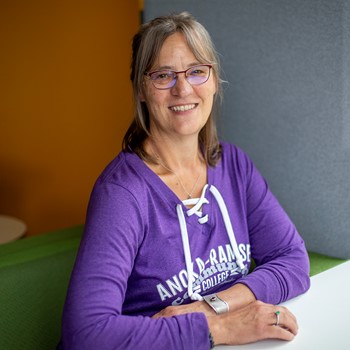Anoka-Ramsey Community College is fully accredited by and a member of the Higher Learning Commission (HLC).
Additional ACCREDITATIONS
- Registered Nursing Associate in Science degree is accredited by the Accreditation Commission for Education in Nursing, Inc.(ACEN).
- Physical Therapist Assistant Associate in Applied Science degree is accredited by the Commission on Accreditation in Physical Therapy Education (CAPTE).
- Anoka-Ramsey Community College is accredited by the National Association of Schools of Music (NASM).
- All business and accounting associate degrees are accredited by the Accreditation Council for Business Schools and Programs (ACBSP).






